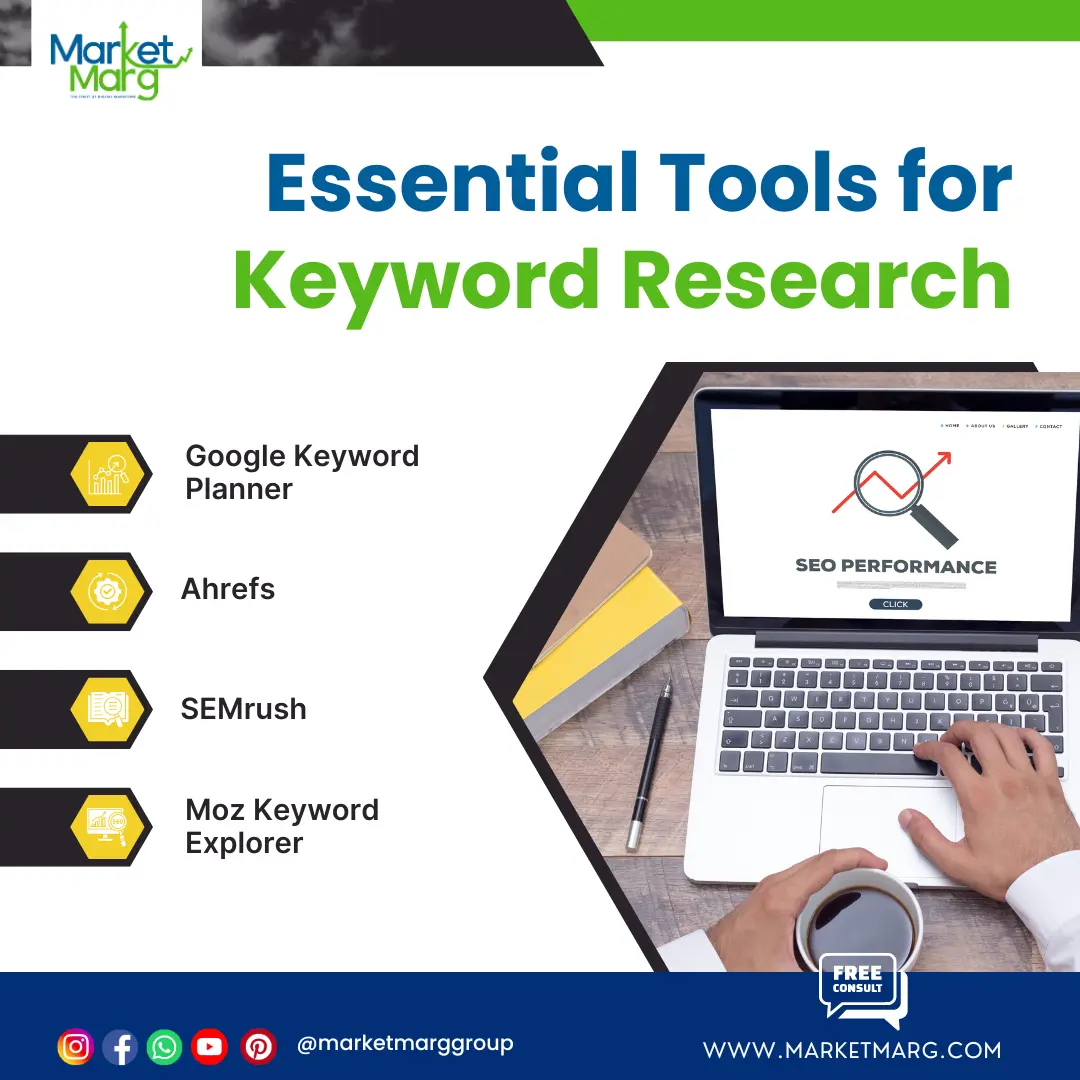In today’s digital landscape, getting your content noticed is harder than ever. With countless websites vying for attention, how do you make sure yours stands out? The secret lies in Keyword Research.
By mastering this essential skill, you can drive more traffic to your website and reach your target audience more effectively. But where do you start? Which tools and techniques should you use? This article will guide you through the process, offering practical advice and insights that anyone can use.
Mastering Keyword Research: Top Tools & Techniques for 10x Traffic
Unlock the secrets of Keyword Research. Learn the top tools and techniques to drive 10x more traffic to your website.
1. Introduction to Keyword Research
Imagine you’re in a library searching for a book on a specific topic. You know the title or subject, but without the proper guidance, you could spend hours searching the shelves. Keyword Research is like having a knowledgeable librarian by your side, helping you find exactly what you’re looking for online.
2. Why Keyword Research Matters
Why is Keyword Research so important? It’s the foundation of SEO. Without the right keywords, your content is like a message in a bottle, floating aimlessly in the vast ocean of the internet. Keywords help search engines understand what your content is about, making it easier for your target audience to find you.
3. Essential Tools for Keyword Research
Keyword Research Tools are like the toolkit of an experienced craftsman. They give you the precision and insight needed to identify the right keywords. Here are some must-have tools:
- Google Keyword Planner: A free tool that provides keyword ideas and traffic estimates.
- Ahrefs: Offers in-depth analysis of keyword competition and search volume.
- SEMrush: Provides keyword suggestions and tracks your competitors’ strategies.
- Moz Keyword Explorer: Helps you find and prioritize the best keywords to target.
4. How to Choose the Right Keywords
Choosing the right keywords is both an art and a science. Start by thinking about what your audience is searching for. What problems are they trying to solve? What questions are they asking? Use tools to identify high-traffic, low-competition keywords that match these queries.
5. Long-Tail Keywords: The Secret Weapon
Long-tail keywords are like a secret weapon in your keyword arsenal. They are longer, more specific phrases that may have lower search volumes but are often less competitive and more targeted. For example, instead of targeting “shoes,” you might target “women’s running shoes for flat feet.” This strategy can help you attract more qualified leads.
6. Analyzing Your Competitors’ Keywords
To outshine your competitors, you need to know what they’re doing. Use tools like Ahrefs or SEMrush to analyze your competitors’ keywords. Identify the keywords they’re ranking for and look for gaps or opportunities where you can outperform them.
7. Optimizing Content with Keywords
Once you’ve identified your keywords, the next step is to use them effectively. But beware: keyword stuffing is a thing of the past. Instead, aim for natural integration of keywords into your content. Use them in your headings, meta descriptions, and throughout the body of your content, but always prioritize readability and user experience.
8. Monitoring and Adapting Your Keyword Strategy
Keyword Research isn’t a one-and-done task. The digital landscape is always changing, and your keyword strategy should evolve with it. Regularly monitor your rankings and adapt your strategy based on performance data. Tools like Google Analytics and Search Console can help you track your progress.
9. Common Mistakes in Keyword Research
Even experienced marketers can make mistakes in Keyword Research. Some common pitfalls include:
- Ignoring Search Intent: Focusing on keywords without considering the intent behind them can lead to high bounce rates.
- Overlooking Long-Tail Keywords: These are often overlooked in favor of high-volume keywords, but they can be highly effective.
- Neglecting Competitor Analysis: Not analyzing your competitors’ keywords can result in missed opportunities.
10. Future Trends in Keyword Research
As technology evolves, so does the field of Keyword Research. Voice search, AI, and machine learning are changing how people search for information. Staying ahead of these trends will help you maintain a competitive edge.
11. Conclusion: Mastering the Art of Keyword Research
Mastering Keyword Research is crucial for anyone looking to drive more traffic to their website. By using the right tools and techniques, you can improve your SEO, attract more visitors, and ultimately, grow your business. Remember, it’s not just about finding keywords; it’s about finding the right keywords that align with your audience’s needs and intent.
12. FAQs
Q1: What is Keyword Research?
Keyword Research is the process of identifying the words and phrases that people use when searching for information online. It helps you understand what your target audience is looking for and how you can create content that meets their needs.
Q2: Why are Long-Tail Keywords important?
Long-tail keywords are important because they are more specific and often less competitive than broader keywords. They help you attract more qualified traffic and improve your chances of ranking higher in search results.
Q3: How often should I update my Keyword Strategy?
Your keyword strategy should be updated regularly, at least every few months, or whenever there are significant changes in your industry or market. Continuous monitoring and adaptation are key to maintaining effective SEO.
Q4: Can I rely solely on free Keyword Research tools?
While free tools like Google Keyword Planner are valuable, relying solely on them might limit your insights. Paid tools offer more comprehensive data and advanced features that can give you a competitive edge.
Q5: What is Search Intent and why is it important?
Search intent refers to the reason behind a search query. Understanding search intent is crucial because it helps you create content that directly addresses what the searcher is looking for, leading to higher engagement and conversion rates.



